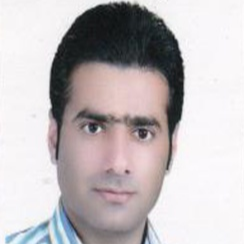
Abdol Majid Mirshekaran
Work place: Research and Development Department, Institute of Advance Science and Technology-IRAN SSP, Shiraz, Iran
E-mail:
Website:
Research Interests: Artificial Intelligence, Robotics, Process Control System
Biography
Abdol Majid Mirshekaran is currently working as a co researcher in Control and Robotic Lab at the institute of advance science and technology, IRAN SSP research and development Center. He is a Master in field of Electrical Engineering from Islamic Azad University, IRAN. His current research interests are in the area of nonlinear control, artificial control system and robotics, and spherical motor.
Author Articles
Design Intelligent Model-free Hybrid Guidance Controller for Three Dimension Motor
By Abdol Majid Mirshekaran Farzin Piltan Nasri Sulaiman Alireza Siahbazi Ali Barzegar Mahmood Vosoogh
DOI: https://doi.org/10.5815/ijieeb.2014.05.05, Pub. Date: 8 Oct. 2014
The minimum rule base Proportional Integral Derivative (PID) Fuzzy hybrid guidance Controller for three dimensions spherical motor is presented in this research. A three dimensions spherical motor is well equipped with conventional control techniques and, in particular, various PID controllers which demonstrate a good performance and successfully solve different guidance problems. Guidance control in a three dimensions spherical motor is performed by the PID controllers producing the control signals which are applied to systems torque. The necessary reference inputs for a PID controller are usually supplied by the system's sensors based on different data. The popularity of PID Fuzzy hybrid guidance Controller can be attributed to their robust performance in a wide range of operating conditions and partly to their functional simplicity. PID methodology has three inputs and if any input is described with seven linguistic values, and any rule has three conditions we will need 343 rules. It is too much work to write 343 rules. In this research the PID-like fuzzy controller can be constructed as a parallel structure of a PD-like fuzzy controller and a conventional PI controller to have the minimum rule base. Linear type PID controller is used to modify PID fuzzy logic theory to design hybrid guidance methodology. This research is used to reduce or eliminate the fuzzy and conventional PID controller problem based on minimum rule base fuzzy logic theory and modified it by PID method to control of spherical motor system and testing of the quality of process control in the simulation environment of MATLAB/SIMULINK Simulator.
[...] Read more.Design Serial Intelligent Modified Feedback Linearization like Controller with Application to Spherical Motor
By Ali Barzegar Farzin Piltan Mahmood Vosoogh Abdol Majid Mirshekaran Alireza Siahbazi
DOI: https://doi.org/10.5815/ijitcs.2014.05.10, Pub. Date: 8 Apr. 2014
Fuzzy logic controller (FLC) is an important nonlinear controller in an uncertain dynamic system’s parameters. This controller is used to control of nonlinear dynamic systems particularly for spherical motor, because it has a suitable control performance and it is a stable. Conversely pure fuzzy logic controller is a high-quality intelligent nonlinear controller; it has two important problems; reliability and robustness in uncertain dynamic parameter. To increase the reliability and robustness, this research is focused on applied feedback linearization method in pure fuzzy logic controller. In this research the nonlinear equivalent dynamic (equivalent part) formulation problem in uncertain condition is also solved by combine pure fuzzy logic control and feedback linearization method. In this method feedback linearization theorem is applied to fuzzy logic controller to increase the stability, reliability and robustness, which it is based on nonlinear dynamic formulation. To achieve this goal, the dynamic-based formulation feedback linearization method is design. This method is robust and model-based nonlinear control therefore can reduce the nonlinearity term of system and reduce the effect of coupling. In this research MAMDANI fuzzy inference system is used as a main controller. It has minimum rule base to practical implementation. This technique was employed to obtain the desired control behavior with a number of information about dynamic model of system and a feedback linearization control was applied to reinforce system performance.
[...] Read more.Design Modified Sliding Mode Controller with Parallel Fuzzy Inference System Compensator to Control of Spherical Motor
By Alireza Siahbazi Ali Barzegar Mahmood Vosoogh Abdol Majid Mirshekaran Samira Soltani
DOI: https://doi.org/10.5815/ijisa.2014.03.02, Pub. Date: 8 Feb. 2014
The increasing demand for multi-degree-of-freedom (DOF) actuators in a number of industries has motivated a flurry of research in the development of non-conventional actuators, spherical motor. This motor is capable of providing smooth and isotropic three-dimensional motion in a single joint. Not only can the spherical motor combine 3-DOF motion in a single joint, it has a large range of motion with no singularities in its workspace. The spherical motor, however, exhibits coupled, nonlinear and very complex dynamics that make the design and implementation of feedback controllers very challenging. The orientation-varying torque generated by the spherical motor also contributes to the challenges in controller design. This paper contributes to the on-going research effort by exploring alternate methods for nonlinear and robust controlling the motor. The robust sliding mode controller proposed in this paper is used to further demonstrate the appealing features exhibited by the spherical motor. In opposition, sliding mode controller is used in many applications especially to control of highly uncertain systems; it has two significant drawbacks namely; chattering phenomenon and nonlinear equivalent dynamic formulation in uncertain dynamic parameter. The nonlinear equivalent dynamic formulation problem and chattering phenomenon in uncertain system (e.g., spherical motor) can be solved by using artificial intelligence theorem and applied a modified linear controller to switching part of sliding mode controller. Using Lyapunov-type stability arguments, a robust modified linear fuzzy sliding mode controller is designed to achieve this objective. The controller developed in this paper is designed in a robust stabilizing torque is designed for the nominal spherical motor dynamics derived using the constrained Lagrangian formulation. The eventual stability of the controller depends on the torque generating capabilities of the spherical motor.
[...] Read more.Other Articles
Subscribe to receive issue release notifications and newsletters from MECS Press journals